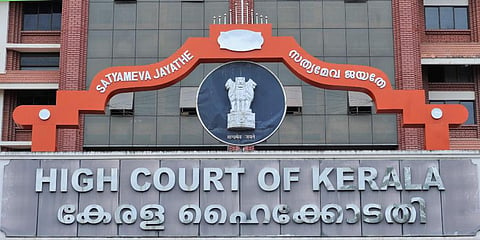

KOCHI: The Kerala High Court on Monday stayed the order of the Election Commission halting the distribution of rice to non-priority ration cardholders in view of the Vishu-Easter-Ramzan festive season. With this order, the state government can continue the distribution of rice as fixed earlier.
Justice PV Asha issued the order on the petition filed by the state of Kerala represented by the Additional Secretary to Government of Kerala, Food and Civil Supplies Department seeking to quash the order of the Commission.
The Election Commission requested the court to ensure that the stay order shall not be used as a weapon in the election by the ruling party to influence the voters. The court made it clear that the distribution should be strictly in accordance with the manual of the Model Code of Conduct (MCC).
All ostentatious functions should be strictly avoided with regard to the rice distribution and no impression should be given or allowed to be created that such welfare measures or relief and rehabilitation works are being undertaken by the government in office so as to influence the electors in favour of the party in power.
The state government argued that the Model Code of Conduct does not apply to the implementation of ongoing programmes. The decision regarding the special distribution was taken on February 4, much before the election notification. The decision was taken on based on the budget speech of the Finance Minister.
In the Kerala Budget, 2021, the government announced additional rice of 10 kg at the rate of Rs 15 would be provided to 50 lakh families having blue and white ration cards, which means non prioritised categories. Hence it will not fall under the prohibition under the Model Code of Conduct, said the government.
The government had ordered that the additional rice required for the distribution must be procured from the Open Market Sale Scheme (OMSS) of the Food Corporation of India (FCI). The state, thereafter, successfully got an auction acceptance offer for rice worth Rs 84 crore from the OMSS of the FCI. If the scheme does not materialise by March 30, the state will have to take steps for a fresh auction, which may entail an additional burden on it.
The concept of a welfare state implies governmental interference for the welfare of its citizens. Such a social welfare measure is the need of the hour in this pandemic situation coupled with the fast-approaching Vishu-Easter festive season and subsequent Ramzan. It was settled law that the object of the MCC is not to stop all governmental activities in the state. If at all the Election Commission were worried of opposition from some political party, that alone is not a material factor. Hence, the act of the commission is not legally sustainable.
The Election Commission submitted that a screening committee consisting of the Chief Secretary has been constituted to streamline the grant of permissions regarding the issues arising out of the model code of conduct. The purpose is to expedite the grant of permission wherever an issue arises. The proposal which was forwarded by the screening committee doesn't disclose any of the aspects mentioned in the writ petition.
Clause 5.4.1 of the manual of MCC with regard to the announcement of financial grants, concessions, relief and subsidy clearly stated that the Election Commission invariably takes a humanitarian view on the works that are necessitated due to man-made and natural calamities. It does not refuse approval for schemes undertaken for tackling emergencies or for providing relief to people suffering from drought, floods, pestilences, other natural calamities or welfare measures for the aged and infirm. In these matters, however, prior approval of the Election Commission should be taken.
In this case, the proposal was insufficient and it was not the opposition or any other political party has raised objection regarding the distribution. The aspect that the last date for the tender is on March 30 is not before the Commission. Let the government file a fresh proposal, argued the Commission.